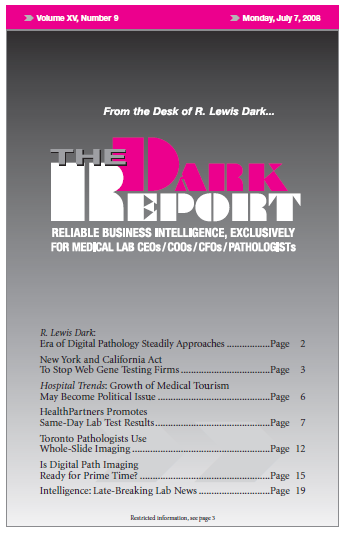CEO SUMMARY: Medicare officials are again attempting to rein in what they consider to be potentially abusive forms of in-office ancillary services, including anatomic pathology. Proposed new rules published this month would clarify and perhaps expand the application of the Medicare anti-markup for purchased diagnostic testing services and for diagnostic tests provided by an ordering …
CMS Anti-Markup Rules Target In-Office Ancillaries Read More »
To access this post, you must purchase The Dark Report.


